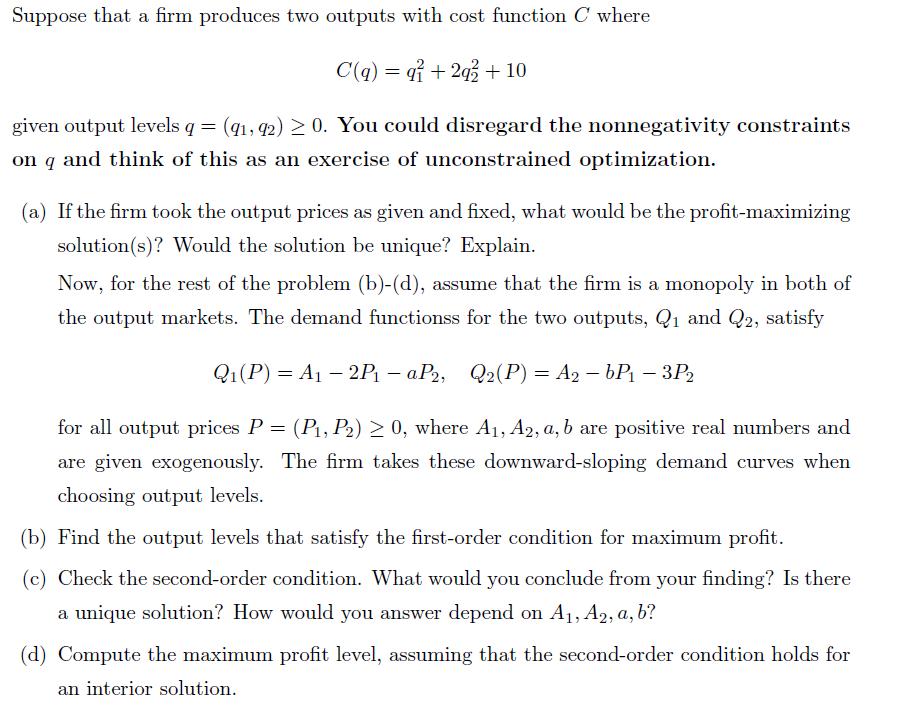Answered step by step
Verified Expert Solution
Question
1 Approved Answer
Suppose that a firm produces two outputs with cost function C where C(q) = q + 2q3 + 10 given output levels q =
Suppose that a firm produces two outputs with cost function C where C(q) = q + 2q3 + 10 given output levels q = (q1, 92) > 0. You could disregard the nonnegativity constraints on q and think of this as an exercise of unconstrained optimization. (a) If the firm took the output prices as given and fixed, what would be the profit-maximizing solution(s)? Would the solution be unique? Explain. Now, for the rest of the problem (b)-(d), assume that the firm is a monopoly in both of the output markets. The demand functionss for the two outputs, Qi and Q2, satisfy Q1(P) = A1 - 2P aP2, Q2(P) = A2 - bP - 3P2 %3D for all output prices P = (P1, P2) > 0, where A1, A2, a, b are positive real numbers and are given exogenously. The firm takes these downward-sloping demand curves when choosing output levels. (b) Find the output levels that satisfy the first-order condition for maximum profit. (c) Check the second-order condition. What would you conclude from your finding? Is there a unique solution? How would you answer depend on A1, A2, a, b? (d) Compute the maximum profit level, assuming that the second-order condition holds for an interior solution.
Step by Step Solution
★★★★★
3.53 Rating (163 Votes )
There are 3 Steps involved in it
Step: 1
a The cost function of the monopoly firm is given as Cqq122q2210 where q1 and q2 represent the first and second output levels Lets suppose the price of the first and second outputs are P1 and P2 respe...
Get Instant Access to Expert-Tailored Solutions
See step-by-step solutions with expert insights and AI powered tools for academic success
Step: 2

Step: 3

Ace Your Homework with AI
Get the answers you need in no time with our AI-driven, step-by-step assistance
Get Started



